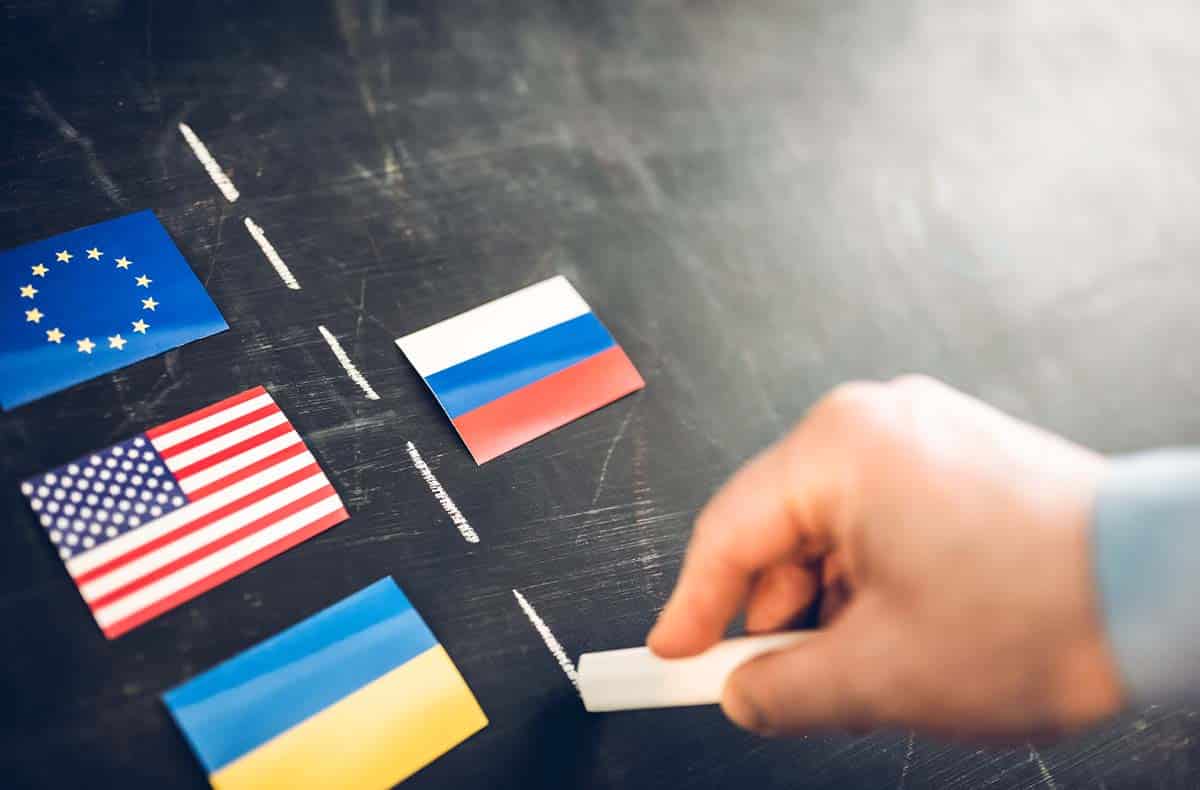
In my previous column, I wrote about the business risk involved in dealing with sanctioned Russia following the invasion of Ukraine.
Since then, Western allies have intensified their battle to force Vladimir Putin’s regime to end its illegal war. The UK, USA, and others have imposed wider-ranging sanctions against Russia, its state allies (here’s looking at you, Belarus!), and individuals considered close to Putin.
On 4 May, Britain’s foreign secretary Liz Truss announced fresh sanctions which had two aims: to disrupt Russia’s global disinformation campaign; and to cut off access to UK professional services providers such as accountants and management consultants. Four days after Truss’s announcement, the White House announced similar measures preventing US citizens from providing professional services to anyone in Russia.
Most UK media coverage has focused on attempts to dismantle Russia’s energetic disinformation network spewing out purposefully misleading facts, figures, and opinions via global television, websites, radio, and social media. UK rules now require social media firms to block all content from Russian state-controlled media, such as RT and Sputnik. Neither broadcaster will be missed, except by a few cranks, and those wearing tin-foil hats.
But to me—and, surely, to global business leaders?—the meat of the UK and US announcements was found in measures taken to prevent Russia and its allies from accessing the lucrative, extensive, and (sometimes) morally ambiguous professional services markets.
In theory, the Russian state and sympathetic oligarchs cannot now use their vast wealth to employ accountants, management consultants and PR firms to conduct or facilitate business. From the UK’s perspective, this followed concerns among Parliamentarians that Moscow was using proxy organisations or London’s huge network of services companies to get around earlier sanctions and pursue its economic interests to fund its war in Ukraine.
Indeed, the more recently outlawed relationships with UK professional services firms previously accounted for 10% of Russia’s imports in those markets: hundreds of millions of dollars annually. As Liz Truss said on 4 May: “Doing business with Putin’s regime is morally bankrupt and helps fund a war machine that is causing untold suffering across Ukraine. “Cutting Russia’s access to British services will put more pressure on the Kremlin and ultimately help ensure Putin fails in Ukraine.”
Global commentators familiar with the UK’s past, and somewhat lax, oversight of Russian money flowing through London will holla “about time.” And they’d be right. For too long, the Russian state and friendly oligarchs have moved billions of dollars of questionable origins through London—so much that the UK capital developed the unfortunate nickname “Londongrad.” Preventing Russia’s direct use of accountancy and management consultancy services on both sides of the Atlantic are positive steps and should assist in tackling money laundering. But do measures introduced by the White House and Truss go far enough?
In April, the Conservative Party MP Kevin Hollinrake wrote to UK chancellor Rishi Sunak expressing concerns that, despite earlier sanctions, the Russian state still stood to gain significant economic benefit from continued activity in London. And some politicians are particularly concerned that UK and US legal services are not covered by the new sanctions.
One case highlighted by Kevin Hollinrake, a Conservative MP, involved bankruptcy proceedings against the former Russian banker, Anatoly Motylev, now residing in the UK. Motylev’s Rossiysky Kredit Bank collapsed in 2015 with reported debts of $2 billion and the businessman was declared bankrupt by the UK High Court. The exact circumstances of the collapse are unclear—some experts believe that Moscow has purposefully forced the closure of several banks or firms owned by Putin’s critics: a claim denied by Russia. But Mr Motylev is subject to formal UK legal proceedings. Total claims against him amount to around £800 million.
Those bankruptcy-related proceedings are managed (as court-appointed trustees) by the UK audit giant Grant Thornton which, under Truss’s latest sanctions, is now prevented from performing other tasks directly for Russian organisations. The initial legal case against Mr Motylev was funded by the London-based litigation finance firm Harbour, while the law firm CMS was engaged to provide advice on claims.
Harbour’s general business model is to pay the upfront costs of legal action, before taking a pre-defined share of any monies or disbursements gained through that litigation. The financier claims that it withdrew from its direct role in the Motylev proceedings in June 2021. But it remains unclear whether Harbour stands to gain financially from any future dispersal of monies or assets.
Harbour has, to date, failed to clarify the situation.
But here’s the twist—and one reason why UK-based professional services firms are a little sensitive about this case and similar legal activity: one of the biggest creditors seeking monies through the Motylev bankruptcy proceedings is Russia’s state-owned Deposit Insurance Agency (DIA). Indeed, a consortium of Russian creditors accounts for half of the £800 million in claims. But as a Russian state-owned organisation, any payments to the DIA during sanctions (however long they last) could find their way into Kremlin coffers and be used to finance Russia’s war in Ukraine. And it is this fact which has vexed British MPs such as Kevin Hollinrake and the Labour Party’s shadow solicitor general Andrew Slaughter.
In a Parliamentary debate shortly after the invasion of Ukraine, Slaughter accused the UK government of not tackling Russia’s use of the domestic legal system to pursue monies or silence critics. He described UK bodies as “going after the minnows and letting the sharks swim away.”
Privately, some MPs are now pushing for more specific bans on Russian access to UK and US legal services. This is a delicate matter. Generally, politicians and businessmen believe all parties in legal cases require access to sound advice so that due process can be followed. But there is a snowballing view that, during sanctions, Russians should not benefit financially from legal disputes.
In 1911, the controversial Italian sociologist Robert Michels outlined his “iron law of oligarchy” to explain elite theory. A century later, the phrase is taking on a very different, literal, meaning.



